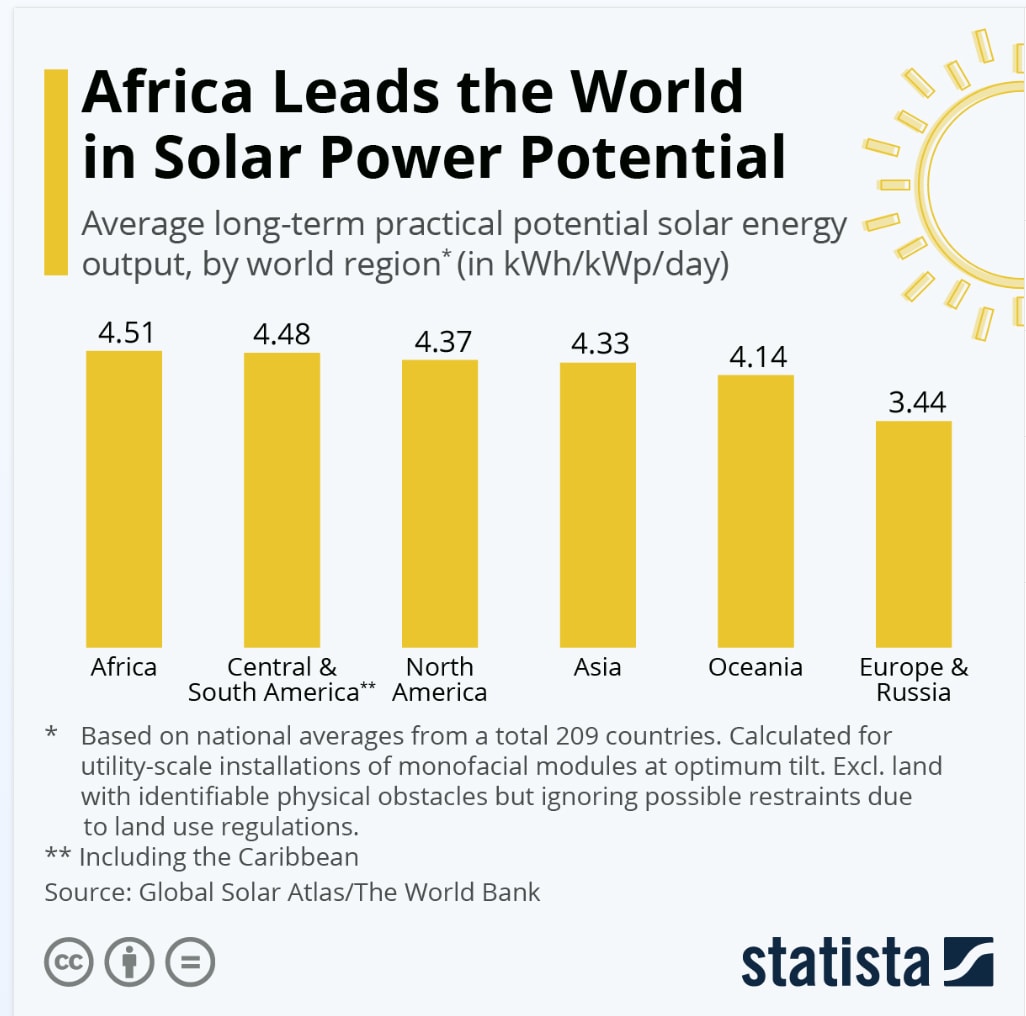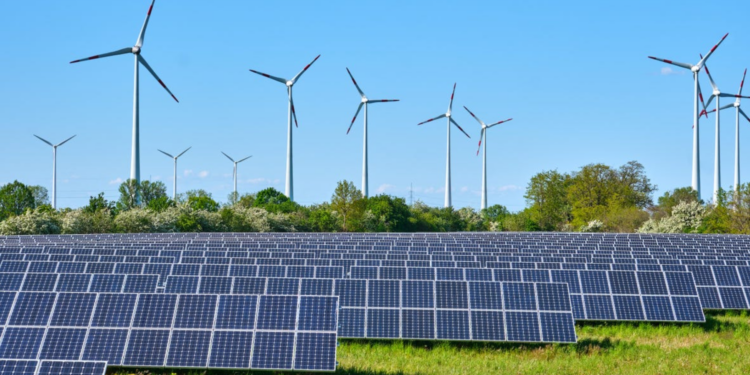Africa’s Energy Trilemma: Achieving Security, Equity And Sustainability
Africa’s energy sector faces a fundamental challenge: balancing the three competing priorities of the energy trilemma – energy security, energy equity and environmental sustainability.
Although the energy trilemma is a problem that many regions are tackling, for Africa, it is particularly pressing, as over 600 million people here live without electricity, power outages are frequent and climate change is having an impact.
Each element of the energy trilemma is critical for Africa. Energy security ensures a stable supply of energy. Energy equity requires affordable, universal access and environmental sustainability necessitates limiting emissions and environmental damage. Improving one of these components often weakens another. Africa must find a path forward that minimizes tradeoffs and maximizes long-term value for its energy sector.
Unpacking Africa’s energy trilemma
1. Energy equity: Who gets power and who doesn’t?
Access to electricity in Africa is uneven and insufficient. Sub-Saharan Africa holds the largest share of the global energy-poor population, with some regions seeing electrification rates below 5%. This energy shortfall affects economic growth, job creation, education and healthcare delivery.
Most electrification gains have come from decentralized solar power. Solar power is scalable and fast to deploy. Africa is at the forefront of its rollout, but solar power is not always sufficient to run energy-intensive services like factories. Solar drives minor reductions in energy poverty, while failing to be a catalyst for broader, more impactful transformation. In regions where population growth outpaces grid development, energy access gaps will persist without significant infrastructure investment.

Image: Statista
2. Energy security: Can the lights stay on?
Africa’s energy systems are unreliable. Over 75% of the continent’s electricity is generated from fossil fuels, such as natural gas, oil and coal. Most of Africa’s energy infrastructure is outdated, a trend exacerbated by a lack of investment in new power plants, transmission systems and maintenance technology.
As a result, outages are the norm. In Tanzania, power disruptions average over 60 days per year and in Burundi, it’s over 140 days. These outages halt production, disrupt services and increase costs. Manufacturers often rely on diesel generators, which are expensive, polluting and inefficient. Stable electricity is the exception for businesses and households, not the rule.
3. Environmental sustainability: Africa’s high stakes
Africa is responsible for less than 4% of global CO₂ emissions, but climate change has an outsized impact on the continent. Floods, droughts, desertification and heat waves are rising. Climate risk is an ongoing and persistent constraint on development, agriculture, water access and public health.
Renewables offer a way forward, though the journey will be challenging. Africa possesses abundant solar, wind, hydro and geothermal resources, but they remain largely untapped due to the following barriers:
• Upfront capital requirements
• Grid integration challenges
• Lack of clear national policy frameworks
• Weak incentives for private investment
Without structural reforms, clean energy development will lag and fossil-fuel reliance will deepen.
Regional energy snapshots
North Africa: Infrastructure first, sustainability second
Countries like Egypt, Algeria and Libya are scaling up power capacity. Italy’s Eni, for example, plans to invest $26 billion in North Africa energy production over four years. While this will improve supply, most projects remain reliant on fossil fuels. Accordingly, though grid access is expanding, long-term emissions risk is rising. Renewable integration remains minimal in national plans.
Sub-Saharan Africa: Ground zero for the trilemma
The Sub-Saharan region faces acute energy poverty, with several countries grappling with challenges related to reliability, affordability and sustainability. Nigeria, for instance, experiences chronic grid failures despite being Africa’s largest oil producer. Reforms like the Electricity Act of 2023 aim to decentralize generation and encourage private investment, but implementation hurdles and gas supply constraints persist. Meanwhile, efforts to scale renewables are slowed by limited transmission infrastructure and financing gaps.
East Africa: Geothermal gains
Kenya and Ethiopia have led geothermal development. Hydroelectric projects also contribute significantly. These sources boost sustainability and security, but project timelines are long and funding is tight. Regional transmission remains underdeveloped, limiting cross-border power trade.
Investment gaps and policy bottlenecks
Despite having 20% of the global population, Africa receives just 2% of global green energy investment. The following issues drive the gap:
• High perceived political and regulatory risk
• Limited creditworthiness of utilities
• Un-bankable projects
• Currency instability
• Complex permitting processes
The World Bank’s pledge to connect 250 million Africans by 2030 centres on off-grid solar. While necessary for basic access, this does little to solve grid instability or power industrial zones. Africa needs investment in large-scale infrastructure, including power generation, transmission, storage and smart distribution systems.
National energy plans often lack coherence, data or implementation capacity. Power purchase agreements are inconsistent or delayed and licensing is slow. Tariffs are frequently below cost recovery. Until investment environments stabilize, capital will remain scarce.
Strategic pathways: No silver bullet, just hard trade-offs
Solving the energy trilemma for Africa means choosing where to focus and when. The right balance will vary by region, political context and available resources, but some shared strategies can accelerate progress. These strategies include the following:
1. Integrated planning
Develop long-term, cross-sector energy strategies. Link generation, transmission and industrial development. Coordinate ministries, utilities and regulators. Use data to prioritize projects.
2. Diversify the energy mix
No single source is sufficient. Blend base-load generation (e.g., gas, hydro, geothermal) with flexible renewables (solar, wind) and storage to avoid overdependence on any single fuel or source.
3. Scale infrastructure investment
Focus on grid extension, mini-grids and smart grids. Prioritize upgrades to reduce losses and improve reliability. Target areas with high economic potential to multiply impact.
4. Reform regulation and pricing
Simplify permitting, standardize contracts and create predictable regulatory timelines. Price electricity to reflect costs, while protecting vulnerable groups through targeted subsidies.
5. Local workforce development
Develop technical training programmes aligned with energy projects. Build local capacity for operation, maintenance and innovation. Reduce long-term dependence on foreign contractors.
6. De-risk private capital
Use blended finance, guarantees and co-investment vehicles to bring in private capital. Multilateral banks and development finance institutions must lead in risk sharing, especially for first-mover projects.
Urgency without panic
Africa’s energy future cannot follow a copy-paste model from Europe or Asia. It must address its own realities, such as low access, weak infrastructure, high growth and rising climate risks.
The energy trilemma is not a theoretical concept; it is the daily reality for millions of people. Electricity that doesn’t exist, power that isn’t reliable, projects that can’t find funding and policies that don’t deliver are just a few of the hurdles blocking meaningful progress.
What comes next depends on the choices made now. The window for low-carbon growth is narrow, but still open. With clear strategies, political commitment and targeted investment, Africa can build energy systems that serve its people, protect its environment and power its future.








